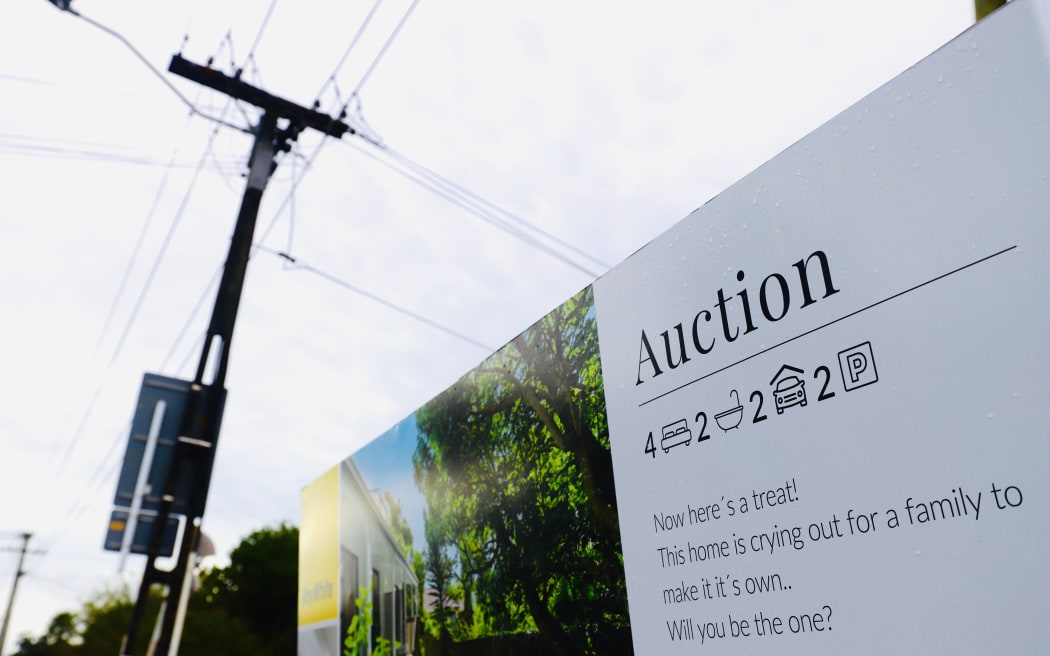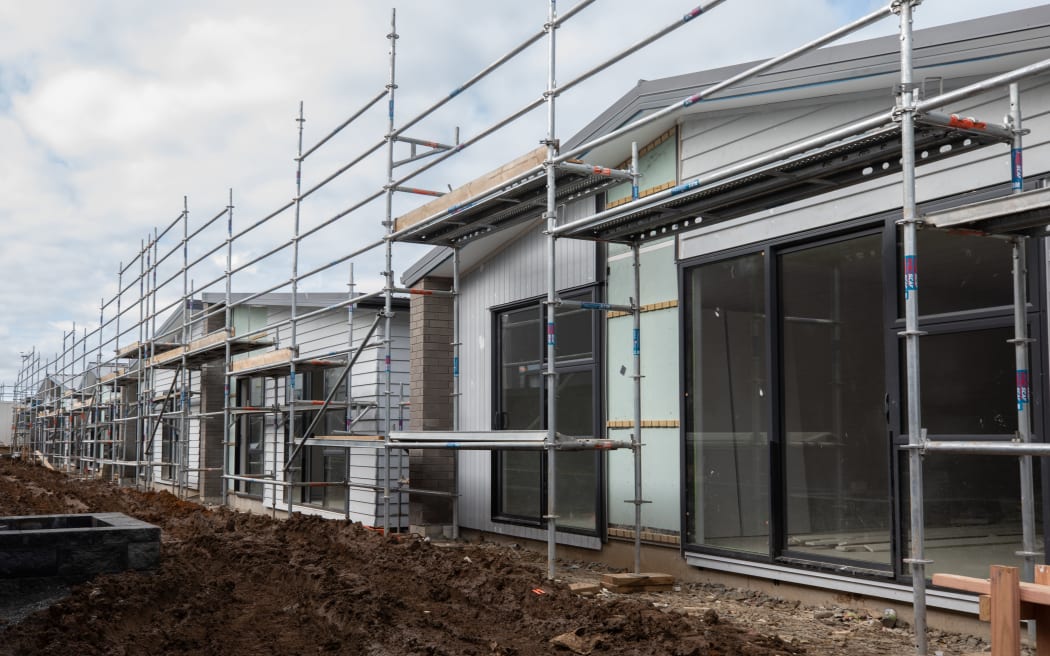Is Golden Age For Property Investment Over?

Most investors buying properties now are banking on capital gains to make them pay off.
But there is a warning that anyone expecting a repeat of the capital gains seen over recent decades could be disappointed.
About 20 percent of sales are currently to property investors. But Opes Partners economist Ed McKnight said data showed about 93 percent required the investor to "top up" the mortgage payments, assuming the full purchase price was borrowed.
Rental yields - the measure of rent an investor could receive compared to the property purchase price - had dropped significantly over the years, he said.
Someone buying a nationally median-priced house in 2000 might have paid about $170,000 and rented it for the national median of about $200 a week.
Now, that same property might be worth $770,000 and rent for more like $600.
"Historically, 10 percent was what people aimed for, you would be very, very, very hard pressed to get that now. Less than one in 200 properties in New Zealand have a 10 percent rental yield or higher, the average is closer to 4.2 percent."
He said that meant most investors were relying on capital gains to make it worthwhile.
"Even at a 5 percent rental yield, if you're borrowing all the money to invest, you could be paying about 7 percent [for that] at the moment."
Investors accepted they would have to top up their mortgage payments, he said.
Many were hoping that as interest rates fell, house prices might lift and the investments would fare better.
Corelogic research head Nick Goodall agreed investors were buying for long-term growth.
"It's hard to see if you purchased an investment property today how you would make that stack up based on how much you're paying on mortgage interest."
But he said debt-to-income ratios could change the trajectory of capital growth, because they would tie how fast house prices could rise to incomes. Price growth rates could drop from 6 percent to 7 percent, to more like 3 percent or 4 percent a year over the longer term, he said.
"Investors cannot build the size of their portfolio as fast because their income has to keep up with the increases in debt levels. Expectations need to be reset."

Corelogic research head Nick Goodall says it will be particularly important to investors to be sure they can find tenants, because higher mortgage repayments made vacancies harder to cover. (file image) Photo: RNZ / Rebekah Parsons-King
ANZ senior economist Miles Workman said changes such as the government's plans to free up more land and allow more density would probably also make housing more affordable than it otherwise would be.
"Maybe there is a new paradigm shift. More housing supply is on the way, maybe the capital gains won't be as strong as they have been in the past.
"Some people out there have seen it as an investment channel that's reasonably easy to understand and maybe the sector is relatively safe, but it doesn't necessarily mean the dynamic will continue in terms of the capital gains side of it."
Goodall said there were still ways investors could make it work but it would often involve identifying properties which could be improved to raise the value or the rent which could be charged, or finding "pockets of value".
But at the moment, it would be particularly important to investors to be sure they could find tenants, because higher mortgage repayments made vacancies harder to cover, he said.
Rent growth was likely to slow, he said, because it was closely tied to tenant income. While incomes had been increasing quickly, the pace had now eased.
"Yields are likely to improve but not at a dramatic level unless we see house prices not increase very much for a sustained period of time."
People's attitudes to property investment were changing, Goodall said. While it was previously seen as one of the few ways New Zealanders could invest for retirement, there were now more opportunities, he said.
But the ability to borrow money to get into property still made it an attractive option for some people, he said.
If an investment in shares doubled in value, it might double what the investor put in. But if someone borrowed 80 percent of the cost of an investment that then doubled in value, they could get back many times their initial investment.

Property investor Nick Gentle says once the Baby Boomer generation sells down, there will be more opportunities to improve the old housing stock. (file image) Photo: RNZ / Dan Cook
Property investor and iFIndProperty co-owner Nick Gentle said it was usually only easy to identify the good times to have invested in hindsight.
"I started after the GFC [global financial crisis]... in hindsight there were opportunities but at the time it was hard to see. The more experienced you are, the better you are at seeing opportunities."
People who were breaking even on an investment now would see things improve over time, he said.
"The last cycle played out over a decade, we're in year two [of this one]. More people will return. At the other end, we're going to have the Baby Boomer generation selling down, a lot of them owned property for a long time and didn't do much to it, so there will be a lot of opportunities to fix up and improve old housing stock."
Infometrics chief forecaster Gareth Kiernan said there would "almost certainly" be an upswing in the housing market at some point, which would drive faster price growth.
But whether investors could hang in there while they waited was the question.
"At this stage, it's hard to see what the catalyst might be, given the weakening labour market, slowing net migration, and limited signs of interest rate relief. If any material upswing in house prices is, say, three or more years away, then the question starts to become whether investors have the means - and the stomach - to keep topping up the mortgage while the value of their asset is drifting sideways."
Most investors buying properties now are banking on capital gains to make them pay off.
But there is a warning that anyone expecting a repeat of the capital gains seen over recent decades could be disappointed.
About 20 percent of sales are currently to property investors. But Opes Partners...
Most investors buying properties now are banking on capital gains to make them pay off.
But there is a warning that anyone expecting a repeat of the capital gains seen over recent decades could be disappointed.
About 20 percent of sales are currently to property investors. But Opes Partners economist Ed McKnight said data showed about 93 percent required the investor to "top up" the mortgage payments, assuming the full purchase price was borrowed.
Rental yields - the measure of rent an investor could receive compared to the property purchase price - had dropped significantly over the years, he said.
Someone buying a nationally median-priced house in 2000 might have paid about $170,000 and rented it for the national median of about $200 a week.
Now, that same property might be worth $770,000 and rent for more like $600.
"Historically, 10 percent was what people aimed for, you would be very, very, very hard pressed to get that now. Less than one in 200 properties in New Zealand have a 10 percent rental yield or higher, the average is closer to 4.2 percent."
He said that meant most investors were relying on capital gains to make it worthwhile.
"Even at a 5 percent rental yield, if you're borrowing all the money to invest, you could be paying about 7 percent [for that] at the moment."
Investors accepted they would have to top up their mortgage payments, he said.
Many were hoping that as interest rates fell, house prices might lift and the investments would fare better.
Corelogic research head Nick Goodall agreed investors were buying for long-term growth.
"It's hard to see if you purchased an investment property today how you would make that stack up based on how much you're paying on mortgage interest."
But he said debt-to-income ratios could change the trajectory of capital growth, because they would tie how fast house prices could rise to incomes. Price growth rates could drop from 6 percent to 7 percent, to more like 3 percent or 4 percent a year over the longer term, he said.
"Investors cannot build the size of their portfolio as fast because their income has to keep up with the increases in debt levels. Expectations need to be reset."

Corelogic research head Nick Goodall says it will be particularly important to investors to be sure they can find tenants, because higher mortgage repayments made vacancies harder to cover. (file image) Photo: RNZ / Rebekah Parsons-King
ANZ senior economist Miles Workman said changes such as the government's plans to free up more land and allow more density would probably also make housing more affordable than it otherwise would be.
"Maybe there is a new paradigm shift. More housing supply is on the way, maybe the capital gains won't be as strong as they have been in the past.
"Some people out there have seen it as an investment channel that's reasonably easy to understand and maybe the sector is relatively safe, but it doesn't necessarily mean the dynamic will continue in terms of the capital gains side of it."
Goodall said there were still ways investors could make it work but it would often involve identifying properties which could be improved to raise the value or the rent which could be charged, or finding "pockets of value".
But at the moment, it would be particularly important to investors to be sure they could find tenants, because higher mortgage repayments made vacancies harder to cover, he said.
Rent growth was likely to slow, he said, because it was closely tied to tenant income. While incomes had been increasing quickly, the pace had now eased.
"Yields are likely to improve but not at a dramatic level unless we see house prices not increase very much for a sustained period of time."
People's attitudes to property investment were changing, Goodall said. While it was previously seen as one of the few ways New Zealanders could invest for retirement, there were now more opportunities, he said.
But the ability to borrow money to get into property still made it an attractive option for some people, he said.
If an investment in shares doubled in value, it might double what the investor put in. But if someone borrowed 80 percent of the cost of an investment that then doubled in value, they could get back many times their initial investment.

Property investor Nick Gentle says once the Baby Boomer generation sells down, there will be more opportunities to improve the old housing stock. (file image) Photo: RNZ / Dan Cook
Property investor and iFIndProperty co-owner Nick Gentle said it was usually only easy to identify the good times to have invested in hindsight.
"I started after the GFC [global financial crisis]... in hindsight there were opportunities but at the time it was hard to see. The more experienced you are, the better you are at seeing opportunities."
People who were breaking even on an investment now would see things improve over time, he said.
"The last cycle played out over a decade, we're in year two [of this one]. More people will return. At the other end, we're going to have the Baby Boomer generation selling down, a lot of them owned property for a long time and didn't do much to it, so there will be a lot of opportunities to fix up and improve old housing stock."
Infometrics chief forecaster Gareth Kiernan said there would "almost certainly" be an upswing in the housing market at some point, which would drive faster price growth.
But whether investors could hang in there while they waited was the question.
"At this stage, it's hard to see what the catalyst might be, given the weakening labour market, slowing net migration, and limited signs of interest rate relief. If any material upswing in house prices is, say, three or more years away, then the question starts to become whether investors have the means - and the stomach - to keep topping up the mortgage while the value of their asset is drifting sideways."










Leave a Comment